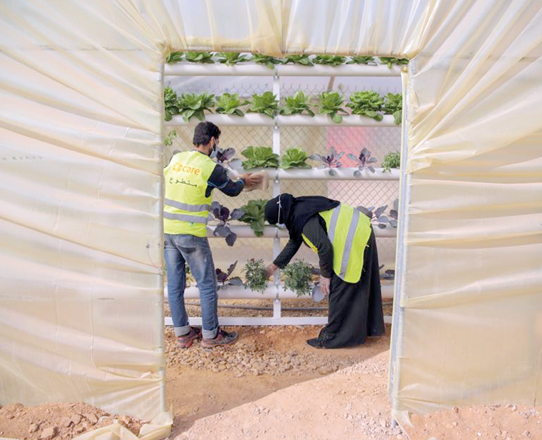AMMAN — As the COVID-19 pandemic enters its third year, debt, unemployment and the fear of homelessness are exacerbating domestic violence and tensions within and among refugee families living in Jordan and their host communities, a new study by CARE International in Jordan has revealed.
CARE Jordan’s 2021 Annual Needs Assessment launched on Wednesday in Amman indicates severe distress among thousands of refugees and vulnerable Jordanian families interviewed across the country, said a statement from the international humanitarian organisation.
Compared to last year, the number of respondents facing verbal and emotional violence at home has risen by more than 30 per cent, with reports of gender-based violence having also increased, the study observed.
“As we’ve seen over the last two years, economic stress and the impact of the pandemic are driving an increase in violence against women and children. Even with more women taking up the role of providing for their families, far from empowering them, few women have any control over how their earnings are spent,” Ammar Abu Zayyad, CARE Country Director in Jordan, said during the virtual launch.
The unease among families is also heightened by a constant threat of homelessness. More than half of the households surveyed said fear of eviction had left them feeling unsafe at home. For many Syrian families living outside the camps, rent constitutes over half their monthly income, leaving them with little for food and other necessities, the statement said.
“Without jobs or savings to fall back on, families live in perpetual fear of having their landlords turn them out or their water or electricity being cut off,” said Julia Maria Angeli, head of Gender and Programme Design at CARE Jordan.
Employment across genders and nationalities declined in 2021 even with the reopening of the Jordanian economy and high COVID-19 vaccination rates. Only 41 per cent of those interviewed had jobs, with Iraqi refugees bearing the brunt of unemployment. Among Syrian refugees, less than a quarter (22 per cent) had work permits — the lowest rate recorded in two years, the statement said.
Although the feeling of safety within the community remained constant from the previous years, there are signs that community solidarity and cohesion are under pressure despite the positive efforts of the Jordanian government and due in part to the reduced funding for the Jordan Response Plan for the Syria Crisis (JRP), read the statement.
“The Jordanian government’s comprehensive response to tackling the COVID-19 pandemic and the mechanisms it put in place to boost the economy have allowed many Jordanians and refugees to retain a dignified life in these difficult conditions, however, renewed and long-term financial support from the international community is urgently needed to mitigate the overwhelming impacts of these crises and maintain social harmony and wellbeing for the most vulnerable communities in the Kingdom,” emphasised Abu Zayyad.
Over seven decades of experience, CARE International in Jordan has built programmes that span the needs of those most vulnerable, while innovating and leading on CARE’s gender priorities, according to the statement.
Established in 1948 in the wake of the Palestinian crisis, CARE Jordan today leads a unified humanitarian and development response to support vulnerable refugee and Jordanian populations sustainably, expand effective partnerships, and enhance empowerment programming, especially for women and youth, the statement said.
Its Protection Programme in urban areas as well as Azraq Camp, and its Sustainable Development Programme are integrated through a Triple Nexus strategy that links development with humanitarian programming and long-term peace-building approaches, achieving greater sustainability and tackling intractable problems, noted the statement.
